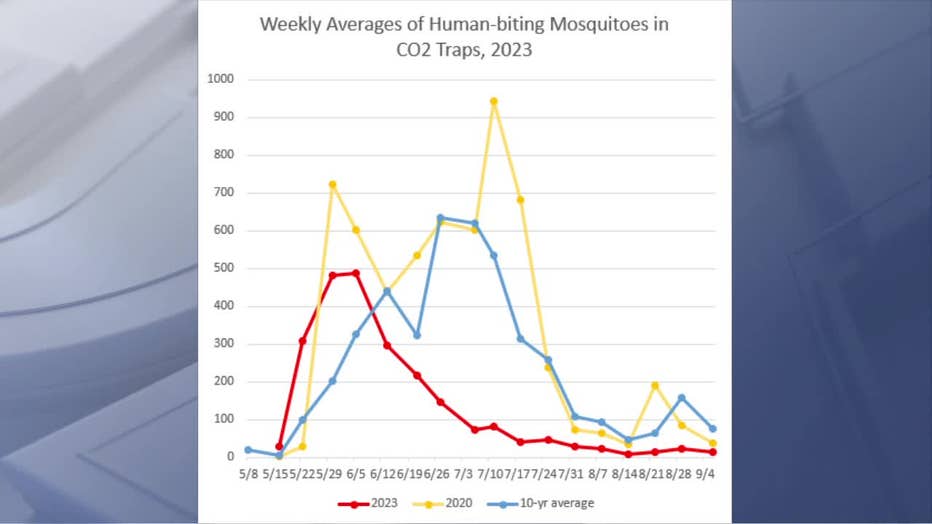Fewer mosquitoes in Minnesota this summer than previous years

Fewer mosquitoes this summer in Minnesota
As we get closer to the first frost of the season here in the metro, our days of dealing with mosquitoes are numbered. And this morning, experts are saying we saw lower than normal mosquito activity. FOX 9's Se Kwon is live now with the results of a new study.
MINNEAPOLIS (FOX 9) - As we get closer to the first frost of the season here in the metro, our days of dealing with mosquitoes are numbered. And this morning, experts are saying we saw lower than normal mosquito activity.
Right at the start of May, most of us were anticipating a horrible summer for mosquitoes. People were getting bitten earlier than usual, and there was already a huge spike in the mosquito population.

The chart above is a look at how this year compares to the 10-year average. The red line is 2023 and the blue line is the 10-year average. Aside from that big spike in May, there were fewer human-biting mosquitoes found in traps this summer. July is known to be the peak of the mosquito season — and look at the difference between this year and 2020, the yellow line. The population being far below average this July really set the tone for the rest of the summer.
While we all could have used some rain this summer, you can actually thank the lack of it for your minimal mosquito bites. The rain is crucial because that's what causes those mosquito eggs to hatch. Now just because you're not getting bitten as often as you normally would, researchers say there's something else to watch out for — the little parasites that actually thrive in these types of temperatures.
"A lot of people think, you know, the mosquitoes are gone and then the bugs are gone. But ticks are a different type of species. They actually, they kind of decline at the end of the summer, but then they come back out in the fall and they can stay out until, you know, early November, you know, as long as it's not really, really cold out they'll stay out. So just because you're not getting bitten by mosquitoes doesn't mean you don't need to check yourself and your pets and your kids for ticks anytime you're, you know, out hiking or out in a wooded area," Alex Carlson, the Metropolitan Mosquito Control District public affairs manager, told FOX 9.

